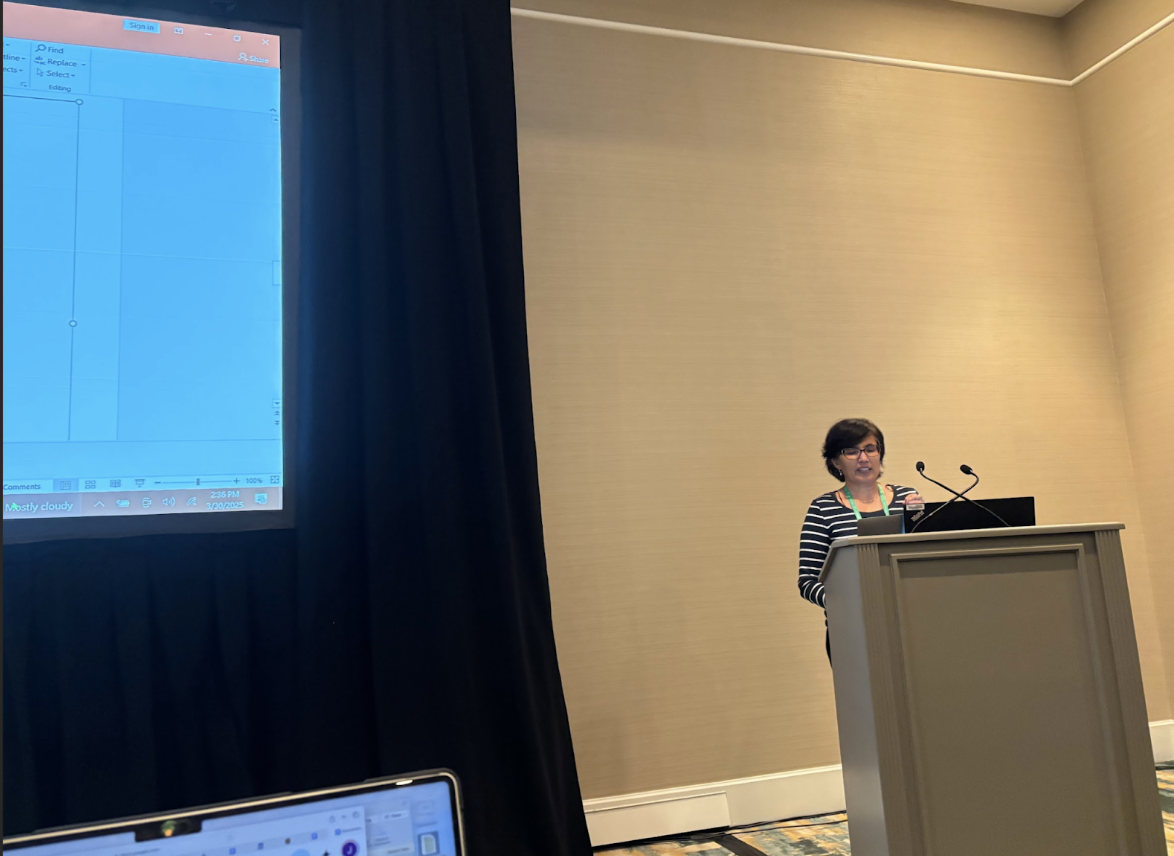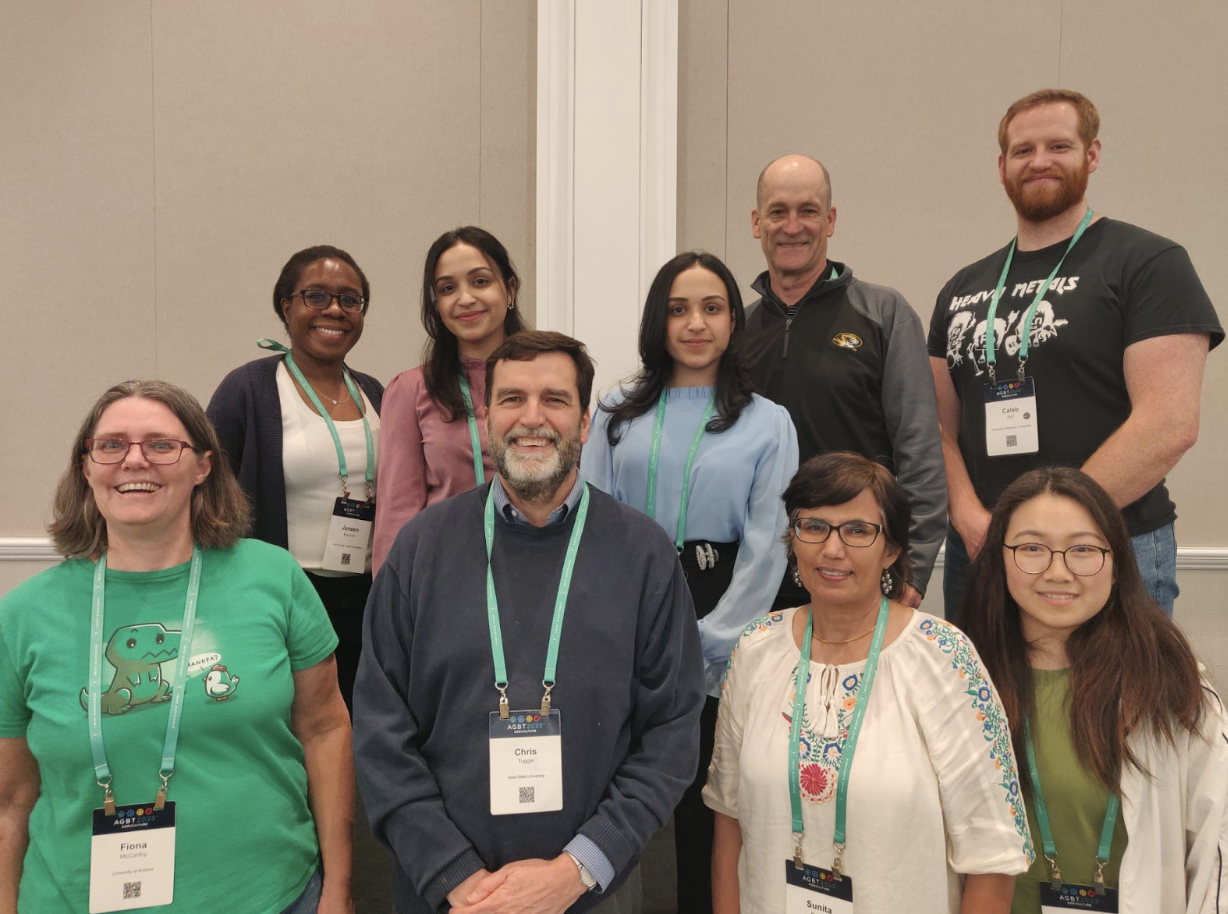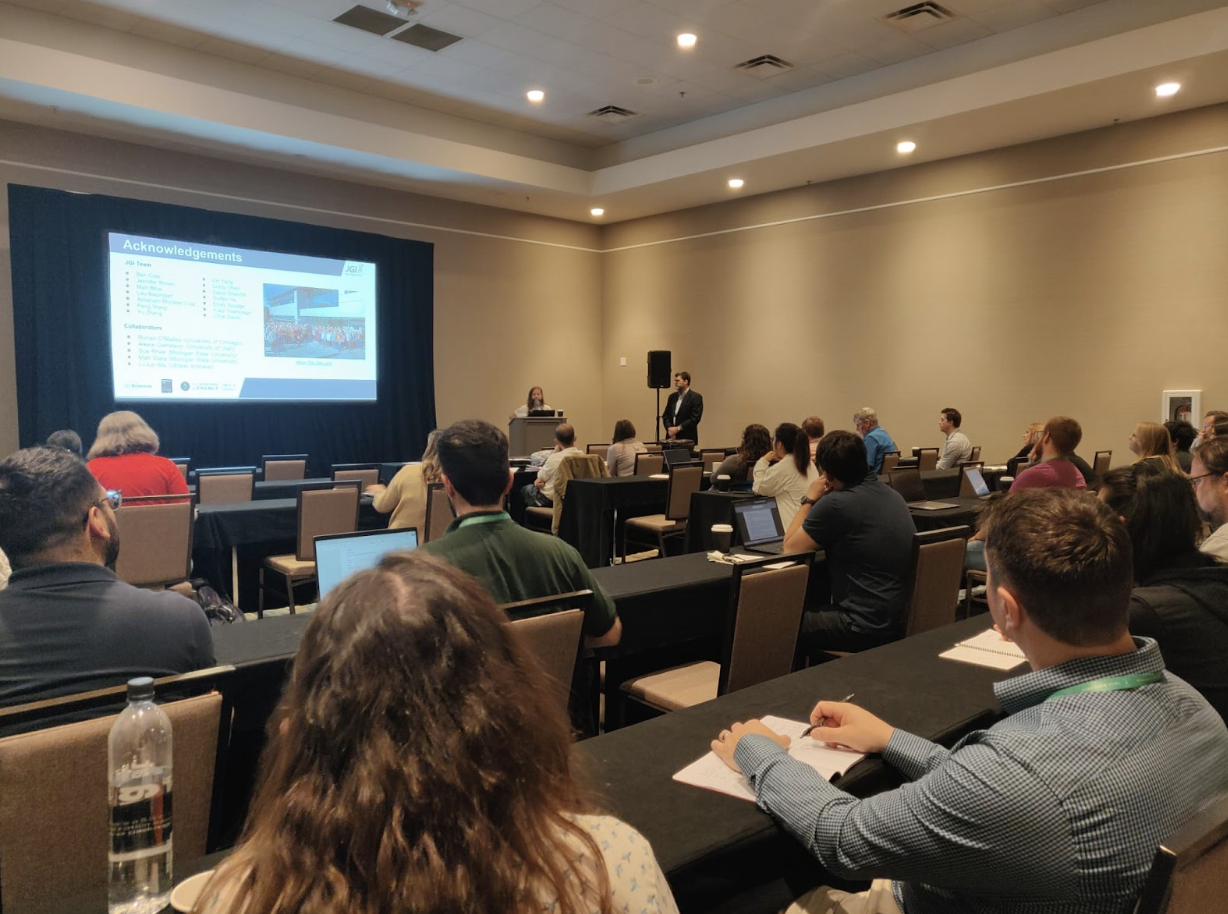Building a Transdisciplinary Agricultural Single-Cell Genomics Community: Highlights from the AG2PI-AgBioData Workshop
On March 29–30, 2025, the AG2PI Single Cell Workshop Organizing Committee and AgBioData Single Cell Biocuration Working Group co-hosted an in-person workshop dedicated to advancing agricultural single-cell genomics. The event brought together a dynamic group of researchers, bioinformaticians, and data curators at the forefront of plant and animal single-cell biology.
This workshop was organized by leading experts including Chris Tuggle (University of Iowa), Sunita Kumari (Cold Spring Harbor Laboratory, CSHL), Doreen Ware (CSHL), Jennifer Clarke (University of Nebraska-Lincoln), Ben Cole (Lawrence Berkeley National Laboratory), Marc Libault (University of Missouri), Fiona McCarthy (University of Arizona), Irene Papatheodorou (Earlham Institute), and Wes Warren (University of Missouri). The workshop featured a blend of keynote presentations, breakout sessions, and collaborative discussions aimed at developing a transdisciplinary and community-driven approach to single-cell data management in agriculture.
The primary goal of the workshop was to foster a community of agricultural researchers and data infrastructure specialists to address the unique challenges posed by single-cell data management, particularly in ensuring that data are FAIR—Findable, Accessible, Interoperable, and Reusable.
Featured Presentations
The workshop opened with a series of thought-provoking talks that laid the foundation for subsequent discussions:
-
Dr. Jennifer Clarke (University of Nebraska) shared insights on “Lessons Learned from Interdisciplinary Projects: Core Values, Orientation, and Organization,” emphasizing the principles necessary to guide large-scale, collaborative scientific efforts.
-
Dr. Sharon Greenblum (Joint Genome Institute) presented on “Data Management and Infrastructure within the Plant Cell Atlas Community,” highlighting scalable systems for managing plant single-cell data.
-
Dr. Irene Papatheodorou (Earlham Institute, UK) discussed “Data and Metadata Management for Re-using and Integrating Cell Atlases,” stressing the importance of harmonized metadata standards.
-
Dr. Wes Warren (University of Missouri) delivered an engaging talk titled “A Single Nuclei and Cell Perspective on the Chicken Immune System,” showcasing advances in avian immunogenomics.
Breakout Sessions & Community Engagement
Six breakout sessions followed, focusing on the development of best practices for describing, storing, and sharing agricultural single-cell data in compliance with FAIR principles. These sessions explored practical strategies for implementation within diverse research communities and infrastructures.
Breakout session topics as follows:
Topics on Identifying best practices:
1. Describing, storing and sharing FAIR data Chairs: Sunita Kumari/Doreen Ware
2. Cell type annotations Chairs: Marc Libault/Wes Warren
3. Identifying and benchmarking relevant pipelines Chairs: Fiona M/Irene P.
Topics on how to achieve identified best practices for the agriculture community:
-
Creating FAIR data storage/sharing Chairs: Sunita Kumari/Doreen Ware
-
Creating common environments for data analysis Chairs: Marc Libault/Wes Warren
-
Organizing benchmarking and training needs for data analysis pipelines for agriculture Chairs: Fiona M/Irene P.
Dr. Sunita Kumari (Cold Spring Harbor Laboratory) chaired the sessions on metadata standardization and workflow reproducibility. She facilitated discussions on critical questions such as:
-
How can we ensure consistent annotation of sample metadata across species?
-
What role can cloud-based platforms play in maintaining FAIR principles while improving data accessibility?
-
Incentivizing researchers to share single-cell datasets in publicly accessible, FAIR-compliant repositories.
-
Enhancing the capabilities of existing repositories (e.g., GEO, ENA) to support agricultural data, drawing inspiration from platforms like the Human Cell Atlas (HCA).
-
Standardizing cell type annotation approaches and benchmarking relevant computational pipelines.
Participants also addressed broader community needs, including:
-
What are additional needs for creating G2P solutions at the cell type level?
-
Offer opportunity to government funding agencies to indicate where these ideas fit within their portfolios
-
Identify writers of white paper, and topics, to USDA and other agencies
-
Identify proposal organizers/leaders for applying for grants in this space
Looking Ahead
These discussions laid the groundwork for strategic planning and actionable next steps, including the development of genotype-to-phenotype (G2P) frameworks at the single-cell level. The workshop also underscored the critical role of the AgBioData Single Cell Biocuration Working Group in facilitating ongoing efforts to resolve challenges in data integration, sharing, and curation.
This workshop represents a pivotal moment in agricultural genomics—mobilizing expertise across domains and species to build a robust, collaborative ecosystem for single-cell research.
More information about the workshop and upcoming events can be found at the AGBT AG Workshops page.
Dr. Sunita Kumari, Cold Spring Harbor Laboratory (CSHL) providing the summary of breakout sessions on metadata standardization and workflow reproducibility. Photo Credit Janeen Braynen, Ph.D.
Members of the AG2PI and AgBioData communities who participated in the single-cell workshop. Photo Credit Janeen Braynen, Ph.D.
A glimpse of the single cell workshop participants during the talk given by Dr. Sharon Greenblum (JGI). Photo Credit Janeen Braynen, Ph.D.
- aolson's blog
- Log in to post comments



